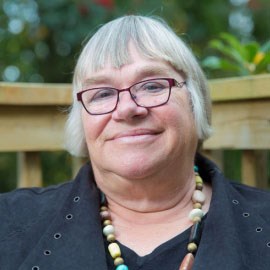“I live in my own little world. But it’s OK, they know me here.” ― Lauren Myracle
The changes taking place in our communities are not always welcoming for newcomers. The developed world is increasingly being populated by a diversity of cultures. Large groups are escaping famine and war and our communities are being asked to welcome and help them to adapt into Canadian society.
Many newcomers arrive poor, scared and with a huge language barrier. They are not going away and I believe we have a duty to help them adjust through day-to-day socializing opportunities. It’s really about fighting isolation, not only for newcomers but for all of us who crave more human contact.
A sense of neighbourliness increases in smaller developments. The optimum number of dwellings in the cohousing movement is around 25 to 30. Communities of more than 50 people or so is too many for building relationships, including even casual ones like greeting someone by name at a community mailbox.
I live in a 55-plus strata community of 139 bungalows (200-plus people) and I certainly don’t know even half of the residents. I know about 10 neighbours well enough to call them friends and another 15 or so as acquaintances. What’s needed in our complex are places to meet-up or to sit and rest.
I am perplexed by the fact that people living in condos or high rises seldom know their neighbours, nor want to. It seems the more units there are in a building, the desire to be invisible increases. Is it a fear of crime or is it self-preservation to avoid socializing with potentially difficult strangers?
If I lived in a tower, like the 37-floor Delta Rise, I might only know one or two residents. Some buildings have a social or party room for folks to gather, but without an active volunteer social committee, these rooms are seldom used for bringing residents together.
There are a few ways we can increase the social fabric where we live? For indoor spaces in condos, placing a small table and chairs close to the elevator on each floor invites sitting, maybe with a newspaper and coffee to share while greeting everyone passing by.
Outdoor spaces: A Tsawwassen resident made a lovely bench from driftwood and placed it at the street in front of his house. It soon became a place to rest or gather at happy hour. When that family moved they kindly left the bench behind because it allows those, and future neighbours, to get to know each other.
The seniors’ fitness circuit at Winskill Park attracts all ages and fitness levels. Delta has a few dog parks, but we need some off-leash fenced parks dedicated to small dogs. Picnic tables and benches encourage socializing, especially for older adults with small dogs in parks, on the dikes and at playgrounds.
Have you heard of cul-de-sacing? The un-used centres of those turn-arounds are great places to gather with immediate neighbours for pot lucks, a book-trade kiosk or an inviting reading garden.
Maybe it’s time we look up from our phones and busy lives. Make eye contact and let a stranger know you see them. A little smile, nod or even a word like “hello” just may make their day, and yours.
ML Burke retired from the health sector to work on issues such as affordable housing. She sits on the Delta Seniors Planning Team and the B.C. Seniors Advocate’s Advisory Council.



